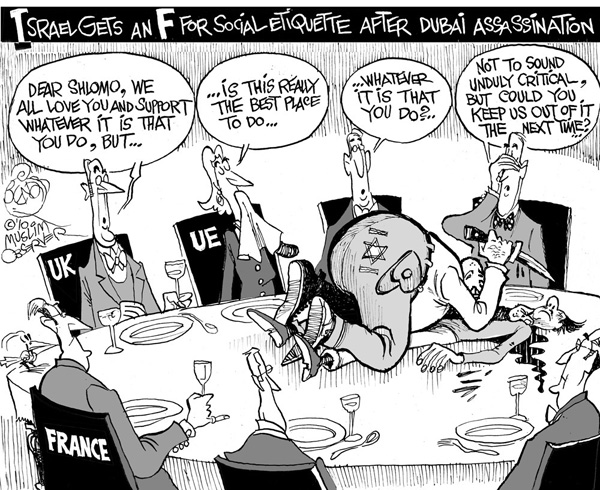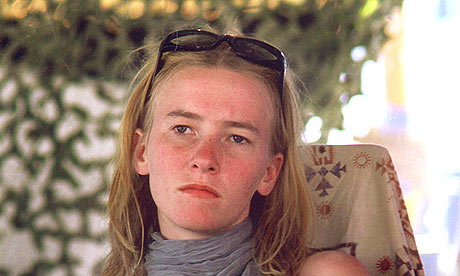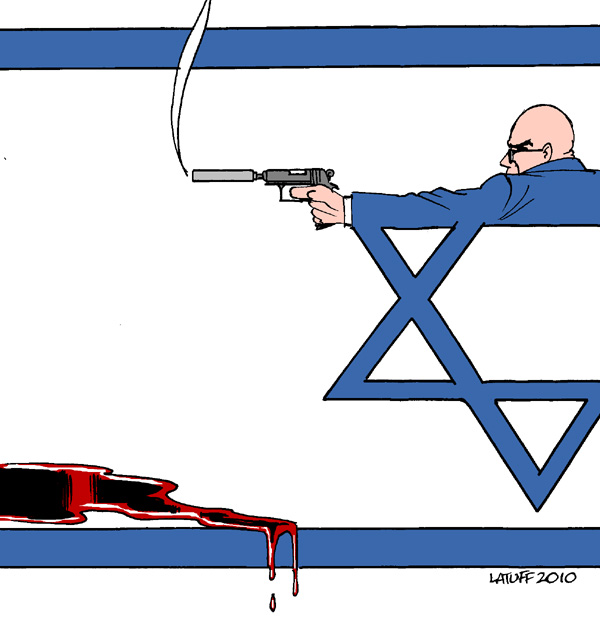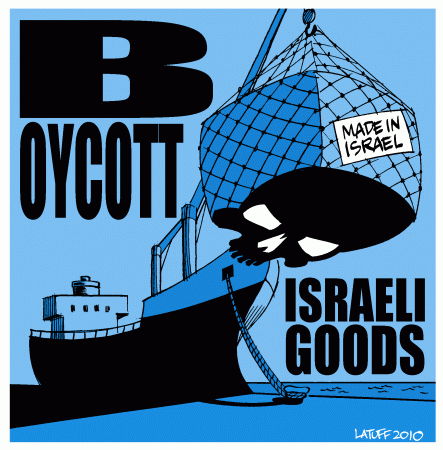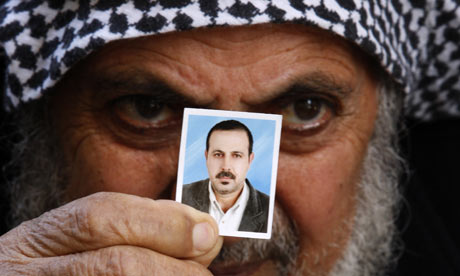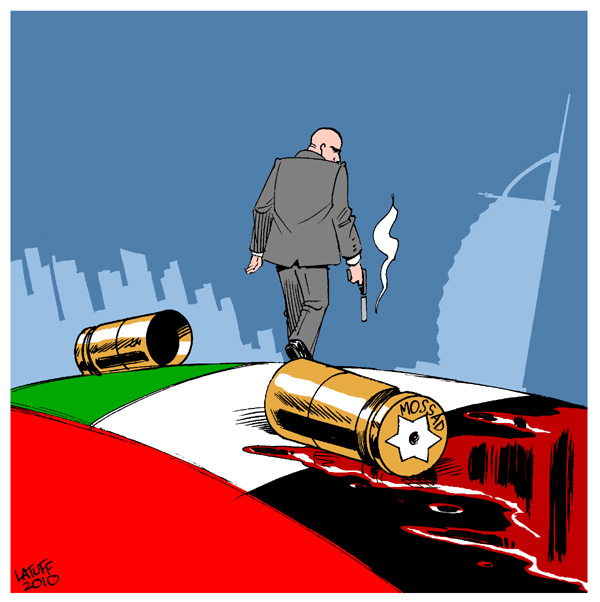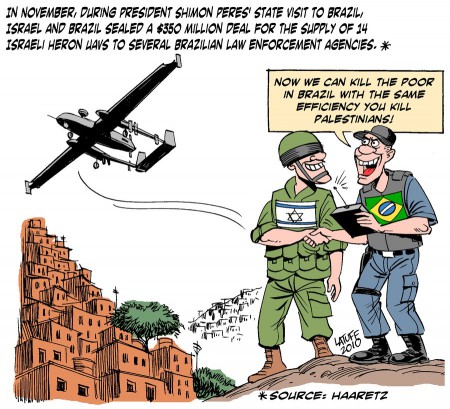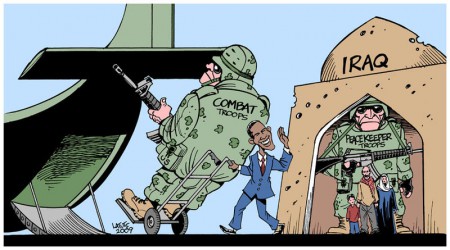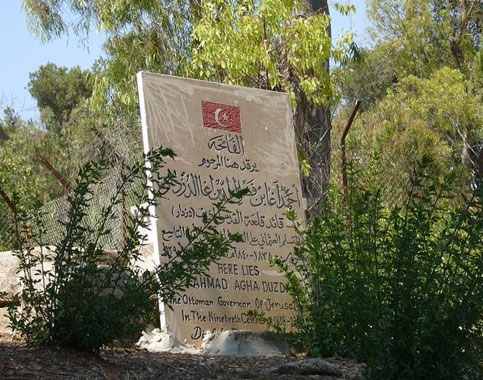Palestinians form new faction in Lebanon: Jerusalem Post
By RACHELLE KLIGER
The National Body for the Protection of Permanent Rights opposes negotiations but will not take up arms.
A group of ten Palestinian figures announced the formation of a new Palestinian faction in Beirut on Wednesday.
The organization, The National Body for the Protection of Permanent Rights, aims to preserve the rights of the Palestinians in Gaza, the West Bank and the diaspora, including those living in refugee camps.
“The living condition of the Palestinian people has reached boiling point because of Israeli political obstinacy, and the American support of this,” Bilal Al-Hassan, a Palestinian journalist, writer and co-founder of the organization said at the launching ceremony. “This situation will now be translated into action and advancement.”
The exact nature of the movement’s policies remains unclear but leaders of the organization plan to meet in May to “decide on its actions democratically.”
The movement, which is declaredly independent, opposes negotiations and supports resistance against the Israeli occupation but insists armed combat is “not its objective”.
“There are martyrdom factions for this purpose that engage in resistance and we give them our blessing,” Al-Hassan told the London-based A-Sharq Al-Awsat.
“By establishing a Zionist entity on Palestinian land, [the Zionists] are targeting Arabs,” the movement’s manifesto says. “Resisting the occupation in all its forms is an obligation, not just a right. Any talks about a just and permanent peace which is based on recovering parts of the land that were occupied in 1967 or even all of it would effectively accomplish the Israeli aim of this war which is to garner acceptance of Israel’s existence and legitimacy, without solving the Palestinian issue and without granting them their rights.”
“Achieving peace between the Arab and non-Arab nations and individuals can be done regardless of their sectarian roots and religious inclinations but peace is not obtainable with the occupation,” it continues. “The Oslo approach is a second nakba [catastrophe], but the difference is that this nakba was furnished by the Palestine Liberation Organization.”
So far, 70 Palestinian figures have signed the movement’s manifesto.
Ali Hweidi, director of the Palestinian Organization for the Right of Return (Thabit) an organization which assists Palestinian refugees in Lebanon, said his organization supported the new initiative.
“Thabit supports this body because it is preserving Palestinian rights,” he told The Media Line. “This body is a reflection of many years of the Palestinian situation, especially after the Oslo [Accords] in 1993.”
“They’re calling for preserving Palestinian rights, the right of return and for no more settlements in the Palestinian territories,” he said. “At the same time they want a reconstruction of the PLO. This is the voice of the Palestinians on the ground inside the camps,” he said referring to over 400,000 Palestinian refugees currently living in camps in Lebanon.
Some have questioned whether the initiatives will indeed serve the Palestinian people.
“We have more than 40 secular parties within the Palestinian political spectrum,” Mohammed Dajani, a Palestinian university professor who established Wasatia, a Palestinian movement advocating moderation to achieve coexistence and development, told The Media Line.
“So the question is whether you want one more, or whether you want to bring together most of those small parties under one umbrella to unify efforts,” he said. “What we don’t need is more fragmentation within Palestinian society. If there will be a coalition that will call for unity and will bring hundreds of divided groups, then it will be helpful to promote the Palestinian cause. Otherwise it will cause division.”
Dajani said the Oslo process had its flaws, but warned against dismissing it completely and going back to the drawing board.
“We need to learn from the past,” he said. “I don’t think that establishing a party in Lebanon calling for no negotiations reflects the reality on the ground. If you don’t want to negotiate, how can you accomplish your goals?”
There is a party here that is occupying our land and you have two options,” Dajani explained. “Either you use the military approach, which has failed and will not work, or you take the diplomatic approach. If you take the diplomatic approach how can you achieve goals without negotiating with the other side?”
The new movement was formed on the backdrop of halted talks between Israelis and Palestinians. Negotiations broke off when the term of former Prime Minister Ehud Olmert ended and Palestinian Authority head Mahmoud Abbas added the condition of a total freeze on Israeli building in post-1967 communities. Despite a 10-month building freeze offered by Prime Minister Binyamin Netanyahu, Palestinian Authority Chairman Mahmoud Abbas maintained that the condition requires an unlimited and absolute freeze that includes East Jerusalem.
Analysts suggest that the stalemate in negotiations is fueling sentiments of frustration among Palestinians with regards to any future solution. The internal Palestinian dispute between Fatah and Hamas is also impeding any movement on the ground.
The founders of the organization include Bayyan Al-Hout, Muhammad Abu Meizar, Munir Shafiq, Salah Al-Dabagh, Bilal Al-Hassan and former Arab Israeli lawmaker Azmi Bishara.
Bishara is a Palestinian Christian who headed the Arab Balad party in the Knesset, Israel’s parliament. His resignation in 2007 came against the backdrop of alleged criminal charges including espionage and treason.
Dubai police: We have 100% DNA proof of one assassin: Haaretz
Dubai police said on Friday they have DNA proof of the identity of at least one of the killers of senior Hamas strongman Mahmoud al-Mabhouh in the emirate country last month.
“We have DNA evidence … from the crime scene. The DNA of the criminals is there,” Dubai Police Chief Dahi Khalfan Tamim said on the Arab satellite television Al-Arabiya.
He said police had “categorical DNA proof on one of the assassins” and fingerprint evidence from several other suspects, providing “100 percent” proof of their identities.
Dubai said it was seeking at least 26 people it suspectd of involvement in the assassination in January.
Last week Interpol added 11 suspected assassins to their most wanted list, all of whom were apparently using forged passports.
The individuals who were charged by Dubai police as responsible for the killing of Hamas commander Mahmoud al-Mabhouh were tagged with “Red Notices,” according to the Interpol’s official website.
The website also specifies that Interpol chose to publish the photos of the suspected assassins since the identities the perpetrators allegedly used were fake, using fraudulent passports to aid them in accomplishing their aim.
Also, the Dubai police chief ahi Khalfan Tamim said Interpol should issue a warrant to help locate and arrest the head of Israel’s spy agency Mossad if the organization was responsible for the killing of a Hamas militant in Dubai.
Meanwhile, a Haaretz probe discovered that the passport photographs of the agents who assassinated Mahmoud al-Mabhouh in Dubai were doctored so the agents would not be identified.
The discovery casts doubt on claims that the espionage agency that carried out last month’s hit on the senior Hamas operative committed grave errors.
Various features of the people in the photographs, such as eye color or the line of a lip, were changed – slightly enough so as not arouse suspicion at passport control, but still enough that the real agent could not be recognized.
Clinton presses Israel to ease blockade of Hamas-ruled Gaza: Haaretz
The United States pressed Israel on Friday to ease its blockade of the Hamas-ruled Gaza Strip, an issue Arab officials have urged Washington to address at it tries to revive Israeli-Palestinian peace talks.
U.S. Secretary of State Hillary Clinton told reporters she had an extended discussion with Israeli Defense Minister Ehud Barak about the Mediterranean coastal strip, which was severely damaged in an Israeli offensive launched in December 2008.
More than 1,400 Palestinians and 13 Israelis were killed in the three-week war in Gaza, which Israel launched following months of rocket fire from the territory into Israel.
Israel has said its blockade of Gaza aims to prevent Hamas, which is hostile to Israel and which seized control of Gaza in 2007, from acquiring weapons or materials that could be used for military purposes.
Some analysts believe the blockade has strengthen Hamas’ hand because of its control over smuggling through tunnels from Egypt. It is also a major irritant to Arab states whose support is vital to resuming Israeli-Palestinian peace talks.
“We discussed it at length and Sen. Mitchell and I made clear some of the concerns that we had and some of the ideas about what more could and should be done,” Clinton told reporters after she and U.S. special envoy George Mitchell met Barak. “We hope to see progress there.”
Israeli-Palestinian peace talks stalled after the Gaza offensive. Despite calling the Arab-Israeli conflict a priority from the start of his administration, U.S. President Barack Obama’s efforts have failed to revive them.
The United States has long urged Israel to ease restrictions on Gaza, where building materials, among other things, remain in chronic short supply and have slowed reconstruction for the territory’s 1.5 million residents.
Speaking before his meeting with Clinton, Barak said the issue was complicated by the continued captivity of Israeli soldier Gilad Shalit, who was seized in 2006 by militants who tunneled into Israel from Gaza.
Barak told the Washington Institute for Near East Policy think tank Hamas continues to be deterred from launching major attacks on Israel because of the late 2008, early 2009 Israeli offensive but it also continues to rearm.
“They are well-deterred. But still they are accumulating more, longer-range rockets through the smuggling system that goes all the way from Iran through Africa to the Gaza Strip,” he said.
“And the situation is not fully stable,” he added. “We still have the abducted soldier (Shalit) and that complicates some aspects of the normalization of the situation.”
Daniel Levy, an analyst with the New America Foundation think tank, noted Clinton was pressed by senior Arab officials as well as ordinary citizens about the situation in Gaza when she visited the Gulf last week.
“The threat to the peace talks is renewed violence in Gaza… but equally problematic for the United States is what the secretary heard in Qatar and Saudi Arabia … ‘what are you doing for Gaza?'” Levy said. “It undermines the credibility of the United States.”
The administration also lost credibility in the Arab world last year when it appeared to soften its demand for a total freeze on Israeli construction in Jewish settlements on the West Bank and in Jerusalem, a step widely seen as undercutting Palestinian President Mahmoud Abbas.
U.S. officials hope Abbas can be persuaded to give up his desire for an absolute halt to settlement construction before resuming talks, particularly if he gets backing from Arab states. They hope this might be forthcoming at an Arab League summit in Tripoli in March
